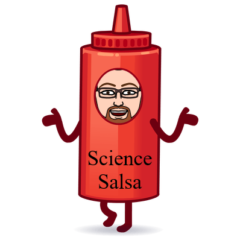A group of graduate students at university of Washington wanted to tell great science stories, and bring them to the public venues of Seattle. They built a student seminar called Engage Science that teaches storytelling and presentation techniques to a diverse group of graduate students. Those students give a public presentation on a theater or another public venue. For three years Seattle’s public has benefited by an engaging window to the science done at University of Washington. The students benefit too by acquiring invaluable communication skills useful inside and outside the “Ivory Tower”. Now Engage Science is asking NSF to help other graduate students do the same all over the country. For that we ask you to please vote for Engage here.
Why are science stories important for you?
A good story can keep you glued to the chair, it makes you travel places with your imagination, and sometimes tells you something about you that you didn’t know before. A good science history can do that and more; it also gives you the facts that are currently know about of world. Well-crafted science stories bring entertainment, inspiration, and knowledge. The kind of knowledge necessary to take informed decisions about our future.
So, why not giving me just the scientific facts?
We are humans, and often we need a reason to really listen to other person, specially if they come with a lot of information about something we think we know enough or are not interested to hear. The story is a form of communication that brings together storyteller and listener, and opens the door for a real dialog. There is a personal connection needed for real knowledge contagion.
Scientists are smart, can they figure out how to tell a story themselves?
Sure, some scientists are extremely good storytellers, but they are a minority in an environment were the listeners are experts of your own field. Scientists in sub-disciplines benefit from a common language and shared previous knowledge, but that made their stories too obscure and uninteresting for non-scientist. This Engage proposal that you will support with your vote wants to help those scientists that want to tell their stories to a broader audience. It will provide seed money to establish a seminar like Engage Science in other schools, using the free Engage blueprint if desired. For more details and to read the proposal please visit this page: http://www.engage-science.com/vote-for-our-nsf-graduate-education-challenge-entry/
Please vote for Engage Science! Last day to vote is May 29th.
Thank you

